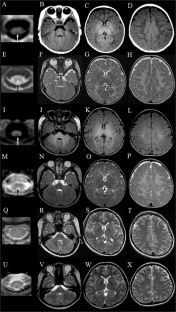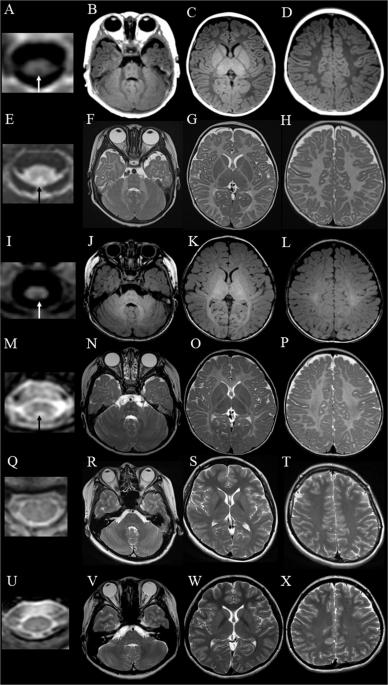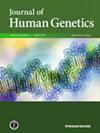A novel heterozygous TMEM63A variant in a familial case with early onset nystagmus, severe hypomyelination, and a favorable adult prognosis
IF 2.6
3区 生物学
Q2 GENETICS & HEREDITY
引用次数: 0
Abstract
Heterozygous transmembrane protein 63A (TMEM63A) variants cause transient infantile hypomyelinating leukodystrophy-19, which features remarkable natural resolution of clinical and imaging findings during childhood. Previous reports have mainly described de novo variants lacking detailed familial cases. Herein, we describe the clinical course of familial cases with a TMEM63A variant. A 5-month-old girl presented with nystagmus, global hypotonia, and difficulty swallowing since birth. Brain magnetic resonance imaging at 1.5 and 5 months revealed diffuse hypomyelination. Her mother, maternal aunt, and grandfather had nystagmus and motor developmental delays in infancy, which resolved spontaneously during childhood. Compared with these cases, the proband’s motor developmental delay was profound, and she was the only one with feeding difficulties, necessitating nasogastric tube feeding. Genetic testing revealed a heterozygous TMEM63A variant (NM_014698.3:c.1658G>A, p.(Gly553Asp)) in the proband and her family. This is the first three-generation familial report of a TMEM63A variant that provides insight into its history and heterogeneity.


一个家族病例中的新型杂合子TMEM63A变体,该病例患有早发性眼球震颤、严重骨髓营养不良,成年后预后良好。
杂合子跨膜蛋白 63A(TMEM63A)变体会导致一过性婴儿骨髓营养不良性白质营养不良症-19,其临床和影像学表现在儿童期会有明显的自然缓解。以往的报道主要描述的是新发变异体,缺乏详细的家族病例。在此,我们描述了具有 TMEM63A 变异的家族性病例的临床过程。一名 5 个月大的女孩自出生后就出现眼球震颤、肌张力低下和吞咽困难。1.5个月和5个月时的脑磁共振成像显示她患有弥漫性骨髓营养不良。她的母亲、姨妈和外祖父在婴儿时期都有眼球震颤和运动发育迟缓的症状,这些症状在童年时期自行缓解。与这些病例相比,原告的运动发育迟缓程度很深,而且她是唯一一个出现喂养困难的患者,需要鼻胃管喂养。基因检测显示,该患者及其家族中存在一个杂合子TMEM63A变异体(NM_014698.3:c.1658G>A, p.(Gly553Asp))。这是首例三代家族性 TMEM63A 变体报告,有助于了解该变体的历史和异质性。
本文章由计算机程序翻译,如有差异,请以英文原文为准。
求助全文
约1分钟内获得全文
求助全文
来源期刊

Journal of Human Genetics
生物-遗传学
CiteScore
7.20
自引率
0.00%
发文量
101
审稿时长
4-8 weeks
期刊介绍:
The Journal of Human Genetics is an international journal publishing articles on human genetics, including medical genetics and human genome analysis. It covers all aspects of human genetics, including molecular genetics, clinical genetics, behavioral genetics, immunogenetics, pharmacogenomics, population genetics, functional genomics, epigenetics, genetic counseling and gene therapy.
Articles on the following areas are especially welcome: genetic factors of monogenic and complex disorders, genome-wide association studies, genetic epidemiology, cancer genetics, personal genomics, genotype-phenotype relationships and genome diversity.
 求助内容:
求助内容: 应助结果提醒方式:
应助结果提醒方式:


